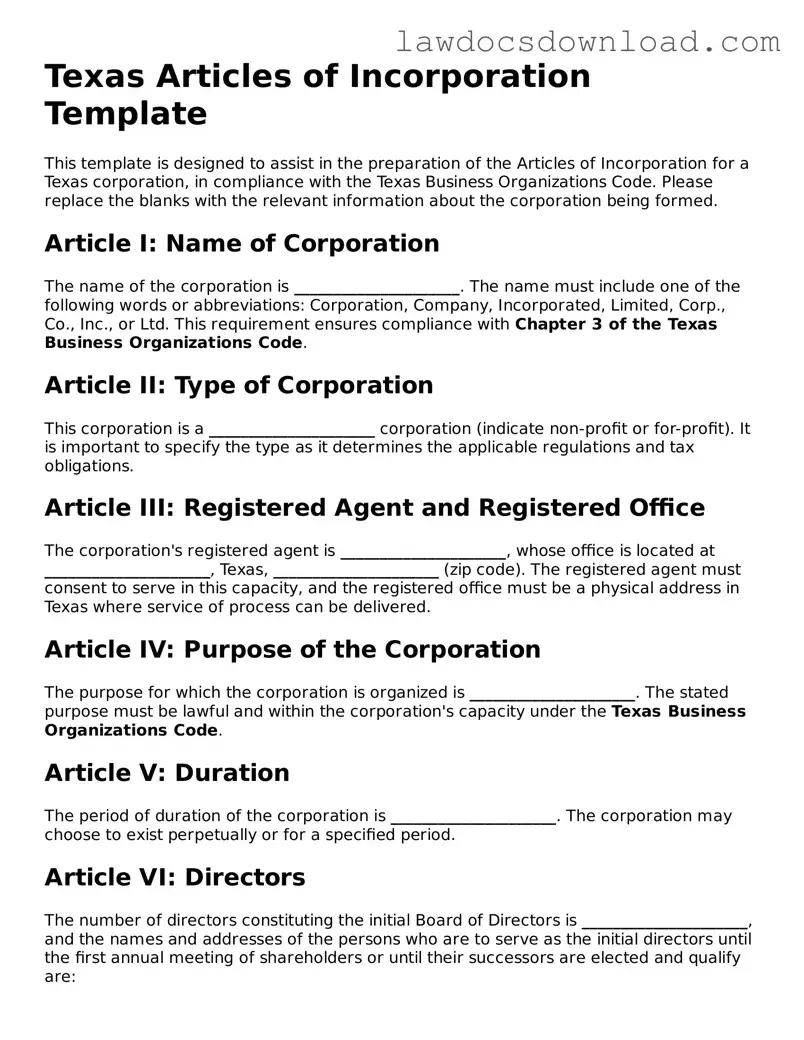Texas Articles of Incorporation Template
This template is designed to assist in the preparation of the Articles of Incorporation for a Texas corporation, in compliance with the Texas Business Organizations Code. Please replace the blanks with the relevant information about the corporation being formed.
Article I: Name of Corporation
The name of the corporation is _____________________. The name must include one of the following words or abbreviations: Corporation, Company, Incorporated, Limited, Corp., Co., Inc., or Ltd. This requirement ensures compliance with Chapter 3 of the Texas Business Organizations Code.
Article II: Type of Corporation
This corporation is a _____________________ corporation (indicate non-profit or for-profit). It is important to specify the type as it determines the applicable regulations and tax obligations.
Article III: Registered Agent and Registered Office
The corporation's registered agent is _____________________, whose office is located at _____________________, Texas, _____________________ (zip code). The registered agent must consent to serve in this capacity, and the registered office must be a physical address in Texas where service of process can be delivered.
Article IV: Purpose of the Corporation
The purpose for which the corporation is organized is _____________________. The stated purpose must be lawful and within the corporation's capacity under the Texas Business Organizations Code.
Article V: Duration
The period of duration of the corporation is _____________________. The corporation may choose to exist perpetually or for a specified period.
Article VI: Directors
The number of directors constituting the initial Board of Directors is _____________________, and the names and addresses of the persons who are to serve as the initial directors until the first annual meeting of shareholders or until their successors are elected and qualify are:
- Name: _____________________, Address: _____________________
- Name: _____________________, Address: _____________________
- Name: _____________________, Address: _____________________
Article VII: Authorized Shares
The corporation is authorized to issue _____________________ shares of common stock. Specify if there are multiple classes of shares or any series within a class, including the rights and preferences of each class or series.
Article VIII: Incorporator
The name and address of the incorporator (the person preparing and filing the Articles of Incorporation) are _____________________, _____________________.
Article IX: Supplementary Provisions
- Indemnification of directors and officers shall be as permitted by the Texas Business Organizations Code.
- The corporation elects to be governed by all of the provisions of the non-profit or for-profit corporation law not otherwise applicable to it under the law.
In witness whereof, the undersigned incorporator has executed these Articles of Incorporation on this day, _____________________.
Signature of Incorporator
______________________________________
Date: ______________________

